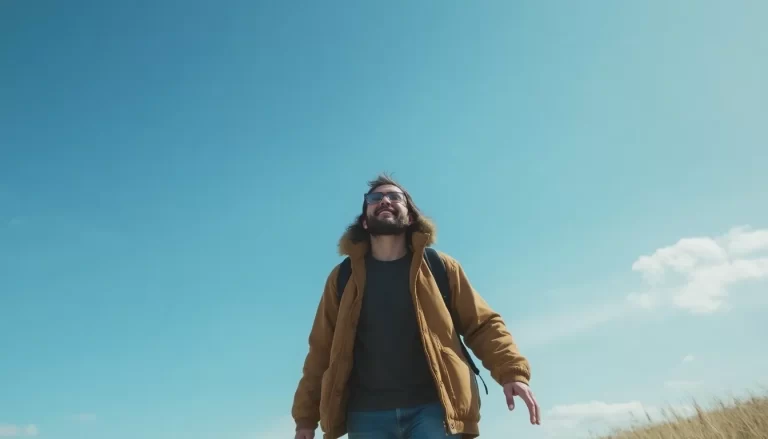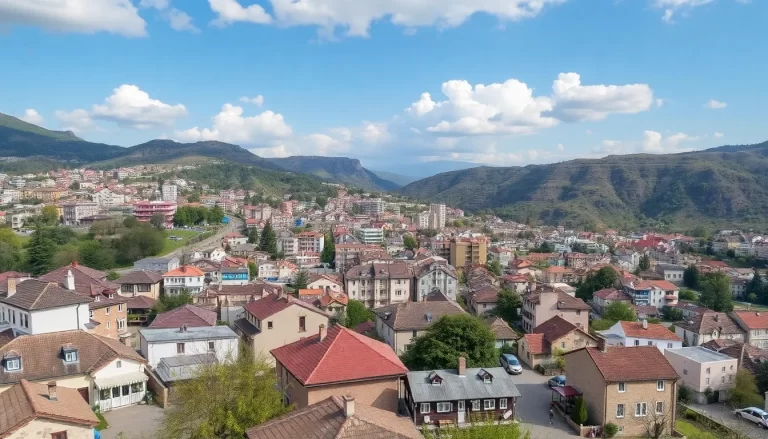Traveling to remote destinations like Madagascar can be a life-changing experience, offering not only stunning landscapes but also a profound understanding of the world’s inequalities. By immersing ourselves in diverse cultures, we can appreciate the privileges we often take for granted. Madagascar, with its unique biodiversity and socio-economic challenges, serves as a poignant reminder of the realities faced by many around the globe.
Exploring the privilege of travel
Two years ago, I reflected on the immense privilege of being able to travel. While many of us roam the globe exploring new cultures, cuisines, and landscapes, it’s crucial to recognize that this opportunity is not universal. For a significant portion of the world’s population, the dream of travel remains just that— a dream.
Travel, in essence, is not merely about visiting new places; it’s about understanding the complexities of the world we inhabit. The ability to travel often depends on a multitude of factors—financial resources, time, and personal circumstances. For instance, it’s estimated that 2.8 billion people live on less than $2 a day, making even local travel an unattainable luxury.
In my home country, the United States, about 14% of the population lives below the poverty line, with millions relying on food assistance. The stark reality is that for many, the concept of travel is overshadowed by survival. Recognizing this privilege helps us travel with intention and awareness.
Planning your journey to Madagascar
Madagascar, often dubbed the «eighth continent» due to its unique flora and fauna, welcomes fewer than 300,000 tourists annually. This is in stark contrast to its population of 26 million, where approximately 75% live in extreme poverty. The country is plagued by issues such as natural disasters, malnutrition, and a lack of education, making it a complex destination for travelers.
Before embarking on your journey, it’s essential to plan thoughtfully. Consider the following:
- Visa Requirements: Most travelers need a visa to enter Madagascar, which can be obtained on arrival or through an embassy beforehand.
- Best Time to Visit: The dry season, from April to November, is ideal for exploring the island’s national parks and beaches.
- Health Precautions: Vaccinations and anti-malarial medications are recommended, given the country’s health challenges.
- Local Currency: The Malagasy Ariary is the local currency, and cash is king in many areas.
Getting to Madagascar
Reaching Madagascar can be a challenge, depending on where you’re traveling from. The main international airport is Ivato International Airport in Antananarivo, the capital. Flights are available from major cities across the globe, although most travelers will find connecting flights necessary.
While planning your arrival, keep in mind:
- Airlines: Look for major carriers that offer flights to Antananarivo. Compare prices on platforms like Skyscanner to find the best deals.
- Travel Duration: Depending on your departure point, flights can take anywhere from 12 to 30 hours, including layovers.
- Local Transportation: Be prepared for limited public transport options. Private taxis or arranged transfers are often the most reliable way to navigate the city.
Traveling solo in Madagascar
For those considering solo travel, Madagascar offers a unique experience. However, safety is a paramount concern. It’s essential to stay vigilant and informed about your surroundings. Here are some tips for safe solo travel:
- Research Areas: Some regions are safer than others; research destinations before setting out.
- Stay Connected: Keep your phone charged and have local contacts saved for emergencies.
- Trust Your Instincts: If a situation feels uncomfortable, prioritize your safety and remove yourself from it.
How to navigate Madagascar
Once in Madagascar, getting around can be quite an adventure. The infrastructure is often inadequate, and travel times can be lengthy due to poor road conditions.
Here are a few options to consider:
- Local Buses (Taxi-Brousse): These shared taxis are a popular and economical way to travel between cities.
- Private Cars: Renting a car with a driver is a more convenient option, especially for longer distances.
- Domestic Flights: For reaching far-off destinations quickly, consider local airlines that connect major cities.
Safety considerations for travelers
In light of ongoing concerns regarding safety, it’s important to stay informed. While many areas in Madagascar are safe for tourists, certain regions may pose risks, including petty crime and natural disasters.
Here are some measures to ensure your safety:
- Stay Updated: Follow local news and consult travel advisories.
- Limit Night Travel: Avoid traveling after dark, especially in rural areas.
- Secure Your Belongings: Keep valuables close and be cautious in crowded areas.
Understanding Madagascar’s socio-economic landscape
Madagascar’s struggles with poverty are starkly visible. The GNP per capita is just $360, with a staggering percentage of the population living on less than $2 a day. The health and education systems are underfunded, leading to high rates of malnutrition among young children.
During my visit, I witnessed firsthand the living conditions of the Malagasy people. Homes often resembled those of early settlers in the United States—basic structures with minimal amenities. Many children wore clothes that were patched together from scraps, highlighting the lack of resources.
Confronting inequality through travel
Traveling can open our eyes to the harsh realities faced by many. It’s important to acknowledge that while we explore new regions, we must also recognize our own privilege. The experiences in Madagascar served as a powerful reminder of the inequality that persists globally.
Your travel should not just be about personal enjoyment; it should also foster understanding and compassion. Engaging with communities and supporting local initiatives can lead to meaningful experiences that extend beyond mere sightseeing. Consider supporting organizations focused on sustainable development:
- Feedback Madagascar: Works with communities to address poverty and environmental issues.
- SEED Madagascar: Focuses on sustainable development, including education and conservation.
- Madalief: Aims to provide education and employment opportunities for impoverished children.
- Reef Doctor: Implements conservation projects while alleviating poverty.
Tips for a meaningful travel experience
To truly embrace the essence of travel, consider these strategies:
- Engage Locally: Spend time with local families and learn about their daily lives.
- Give Back: Donate to or volunteer with organizations dedicated to improving community conditions.
- Be Open-Minded: Approach every interaction with a willingness to learn and understand.
Travel is a powerful tool for fostering empathy and awareness. By stepping outside our comfort zones, we can gain a better understanding of the world and our place within it.







